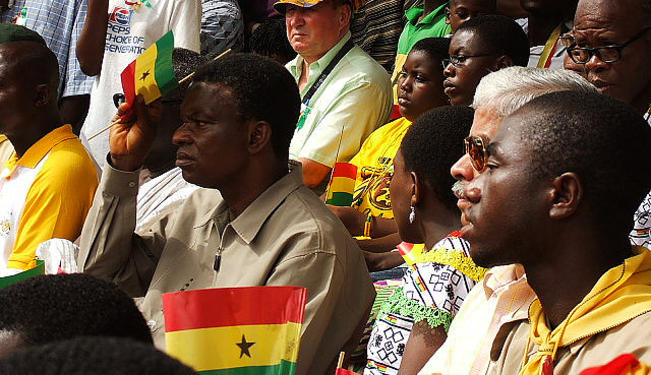
This December, Ghanaians will be heading to the polls to elect the next president of the country. Their decision will be crucial in determining Ghana’s political and economic future.
Background
In December this year Ghanaians will go to the polls for the 6th time since Ghana became independent from British colonial rule in 1957 and vote for their parliament and head of state. It was one of the first African countries to free itself from colonialism, yet Ghana struggled to maintain democracy thereafter. A coup d’état deposed of its first president Kwame Nkrumah in 1966 followed by nearly three decades of alternating phases between civilian and military governments. However, since 1992 Ghana developed a stable democracy and is today considered a prime example of political stability on the African continent.
The 2012 elections will yet again be a chance to reiterate democratic stability in Africa with Ghana as a living political proof. The main contestants in it will be the country’s two main parties: the National Democratic Congress (NDC) and the New Patriotic Party (NPP). Both parties had governed the country in the past: NPP’s John Agyekum Kufuor served as a president from 2001 to 2009 and Jerry John Rawlings served from 1993 and 2001 for the NDC. Ghana’s last elected president John Evans Atta Mills who took over office in 2009 was also a member of the NDC, but after his unexpected death in July this year his fellow party member and vice president John Dramani Mahama took over. Mills was supposed to run for office again this year and his death added yet another variable to an already unpredictable equation in this presidential race.
Why are the Elections in Ghana Relevant?
Even though Ghana is relatively stable, this political stability cannot be taken for granted. Observers see the elections as a potential threat to this stability and the last elections in 2008 illustrate how fragile it really is. Back then the NDC won by a very narrow margin and the following disputes could only be settled by the careful actions of the Electoral Commission. Given what is at stake this time, it is no surprise that campaigning especially before Mill’s death has been intense. Ghana is one of Africa’s most recent oil producers and whoever will succeed in this election governs the country during the peak of oil production and its associated revenues. . This could potentially shift the power balance between the two main competitors. Especially the NPP seems to feel the danger of losing political influence and its presidential candidate Nana Addo Danquah Akufo-Addo has used fierce rhetoric in the past, repeatedly calling the elections an “all die be die” issue. The NDC and its candidate Mahama on the other hand have recently taken a campaigning approach that highlights the importance of peaceful elections for the country.
As the race for power in Ghana speeds up, it remains to be seen, if the country and its political actors are able face the challenges ahead and make another peaceful transition.
For more than 10 years, Fair Observer has been free, fair and independent. No billionaire owns us, no advertisers control us. We are a reader-supported nonprofit. Unlike many other publications, we keep our content free for readers regardless of where they live or whether they can afford to pay. We have no paywalls and no ads.
In the post-truth era of fake news, echo chambers and filter bubbles, we publish a plurality of perspectives from around the world. Anyone can publish with us, but everyone goes through a rigorous editorial process. So, you get fact-checked, well-reasoned content instead of noise.
We publish 2,500+ voices from 90+ countries. We also conduct education and training programs on subjects ranging from digital media and journalism to writing and critical thinking. This doesn’t come cheap. Servers, editors, trainers and web developers cost money.
Please consider supporting us on a regular basis as a recurring donor or a sustaining member.
Support Fair Observer
We rely on your support for our independence, diversity and quality.
Will you support FO’s journalism?
We rely on your support for our independence, diversity and quality.



